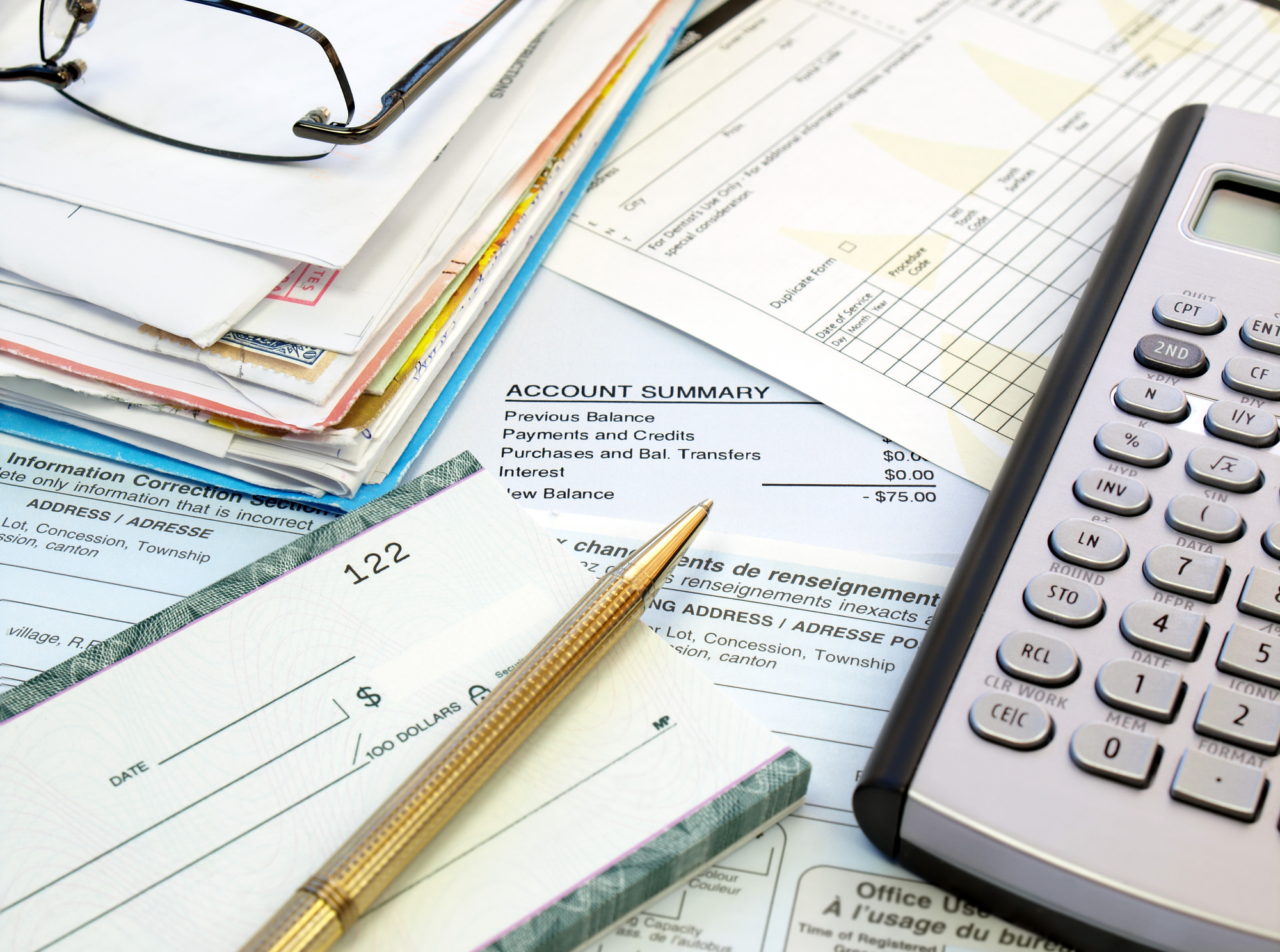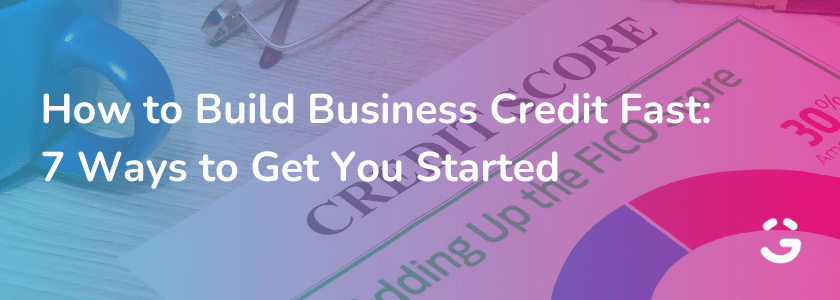If you’ve ever felt stuck waiting for your business to move forward, you’re not alone. Maybe you're waiting for a client to pay, hoping for new work to come in, or looking for fast funding—like $500 or $1,000—to cover something urgent. One thing often standing in the way of quick cash flow? Your business credit. If yours isn’t strong (or doesn’t exist yet), it can hold you back when you need to move forward.
Why is Good Business Credit Important?
Strong business credit can be a game-changer. It helps you qualify for funding, unlock better payment terms with suppliers, and gives you more flexibility when new opportunities come up. On the flip side, if your credit is weak—or doesn’t exist at all—you could find yourself stuck paying upfront, missing out on deals, or scrambling when cash flow gets tight.
You don’t need years to build a solid credit profile. With a few strategic steps over the next few months, you can start earning trust with lenders and vendors and open the door to better financial opportunities.
7 Easy Tips for Building Your Business Credit
Wondering how to build your business credit quickly and effectively? The process is more straightforward than it seems.
Here are seven simple steps you can start using today.
1. Choose the Right Business Setup from the Get-Go
Before you can build solid business credit, you need to make sure your business is set up the right way. Think of it like laying a strong foundation. Everything you build after that has a better chance of holding up.
You can technically start building business credit as a sole proprietor, but setting up a legal business entity like an LLC (Limited Liability Company) or a corporation gives you a stronger start. These structures create a clear separation between your personal and business finances. That means your personal assets, like your car or home, are protected if something goes wrong with the business.
On top of that, lenders, banks, and vendors tend to take your business more seriously when it's legally structured. An LLC is a common pick for small business owners because it's flexible, easy to manage, and offers liability protection. If you’re considering scaling or bringing in investors later on, a corporation might be a better fit, though it comes with more paperwork.
Whichever option you go with, the goal is to make your business official in the eyes of the financial world. That builds credibility from day one and puts you on the path toward stronger business credit. Starting with the right setup now can save you a lot of time and headaches later.
2. Get Your Federal Tax ID or EIN
After setting up your business, the next step is to apply for an EIN—short for Employer Identification Number. This is like a Social Security Number, but for your business.
The IRS website is free and easy to access, and the process only takes a few minutes. Your EIN is required for many necessary steps, like opening a business bank account, filing taxes, and applying for business loans or credit. Even if you don’t have any employees, having an EIN makes your business look more official.
Most lenders, vendors, and credit card companies will ask for it when you apply. It also helps keep your personal information (like your Social Security Number) off your business documents.
Before applying, try setting up a business phone number and address. These details make your business look more professional and help you get credit approval faster.
If possible, create a simple website with your business name, services, and contact info. A one-page site is enough to show lenders and customers that your business is real. If a website isn’t in the cards right now, setting up a Facebook, Instagram, or LinkedIn page can help build trust, too.
3. Set Up a Business Bank Account
Once you have your EIN, your next step should be opening a business bank account. This is a key part of keeping your business finances organized and separate from your personal funds.
It makes tracking income and expenses easier, especially during tax season. More importantly, lenders and financing platforms often review your business account to understand how your business is performing. A steady flow of deposits and withdrawals shows that your business is active and consistent, which can help your chances when applying for funding.
Having an account in your business name also builds credibility and can help you form a relationship with your bank. That relationship can lead to more financial tools or funding opportunities in the future.
4. Start Building Business Credit with Vendor Accounts
One of the quickest ways to start building credit is through vendor accounts. These companies let you buy products or services for your business and pay later, usually on terms like Net-30.
When you pay these accounts on time, and the vendor reports your payments to business credit bureaus, you begin building a positive credit history.
Look for vendors that clearly report to credit bureaus. Even basic purchases like office supplies or materials for your service-based business can count toward your credit profile if reported.
You can also build credit through funding options that report payment activity. Giggle Finance is a good example. We offer fast access to cash advances—starting at $1,000, $2,000, and going up to $10,000—and report on-time payments. That helps strengthen your business credit while giving you the funds to keep things moving.
You don’t have to wait to get started. Choose a vendor (or funding partner) that supports your goals and helps you build business credit at the same time.
5. Pay On Time

Your payment history plays a big role in your business credit score. Credit bureaus track how many days past the due date you pay, known as “Days Beyond Terms.” Even a few late payments can hurt your credit profile.
To stay on track, try these simple strategies:
- Set up automatic payments for at least the minimum due. This keeps things moving even when you're busy.
- Use calendar alerts a few days before each due date to catch anything that might slip through.
- Pay early when possible. Even a few days ahead can make a difference.
If cash is tight, paying a smaller amount on time is better than missing a payment while waiting to pay in full. What matters most is showing consistent, on-time behavior. It tells lenders and credit bureaus that your business can be trusted.
6. Keep Your Credit Usage Low
When figuring out how to build business credit fast, one key factor is how much of your available credit you’re using. This is known as your credit utilization ratio, and it can heavily influence your credit score, especially with revolving accounts like credit cards and business lines of credit.
The lower your utilization, the better. For example, if your credit limit is $10,000 and you only use $2,000, that’s a 20% utilization rate. That tells lenders you’re using credit wisely and not overextending your business.
You can ask for a credit limit increase after six to twelve months of responsible use. A higher limit lowers your utilization ratio and improves your credit profile, even if your spending stays the same.
The bottom line: just because you have access to credit, you don’t have to max it out. Keeping your balances low shows financial discipline and makes your business look more reliable to lenders and vendors.
7. Keep an Eye on Your Business Credit Health
If you’re working on how to build business credit fast, regularly checking your credit reports is a must. It gives you a clear picture of how your efforts are paying off and helps you spot any issues before they slow you down.
There are several business credit bureaus—Dun & Bradstreet, Experian Business, and Equifax Business—so your reports might vary depending on where you look. Since lenders, suppliers, and even potential clients may check any of them, it’s important to stay updated on each one.
Mistakes on credit reports are more common than you might think. You could find outdated contact info, missing accounts, or errors that hurt your score. Catching and correcting these issues early can make a big difference, especially if you're trying to get business credit fast or improve your chances with lenders.
Checking your reports also shows whether vendors report your payments and how your score trends. It’s one of the most direct ways to track progress while learning how to build your business credit fast and how to build a business credit fast that stands up to lender expectations.
Keeping a close eye on your credit helps you protect your business from identity theft. If someone opens an account in your business’s name or changes your details without permission, you’ll likely catch it early.
If you want even more insight, credit monitoring services can track changes across multiple bureaus and send alerts when something new shows up. These tools can be helpful, especially for business owners aiming to build business credit fast for LLCs or anyone focused on growing fast business credit while keeping risks low.
Start Small, Build Smart—And Grow with Confidence
Learning how to build business credit fast might feel like a long-term goal, but you don’t have to wait years to see progress. Every step you take today helps shape your financial future—whether you're an LLC, sole proprietor, or independent contractor.
If you’re working on how to build your business credit fast and hit a cash-flow snag, that doesn’t mean you need to hit pause. Giggle Finance is here to support your momentum. Our flexible advances are built for self-employed workers who don’t have time to wait around for approvals, credit checks, or mountains of paperwork.
You can still get business credit fast, even if you're starting small. Focus on staying consistent—pay bills on time, track your credit, and use tools that help you move forward.
Need a quick cash boost while building? Giggle Finance offers fast funding solutions ranging from $5,000 to $10,000. Whether you're just starting out or looking to strengthen your profile with fast business credit, we’re here to help make it happen.
Disclaimer: Giggle Finance provides Revenue-Based Financing programs for business purposes only. Any mention of any loan product(s), consumer product(s), or other forms of financing is solely for marketing and educational content purposes and to help distinguish Giggle Finance’s product from other comparable financing options available in the market.
